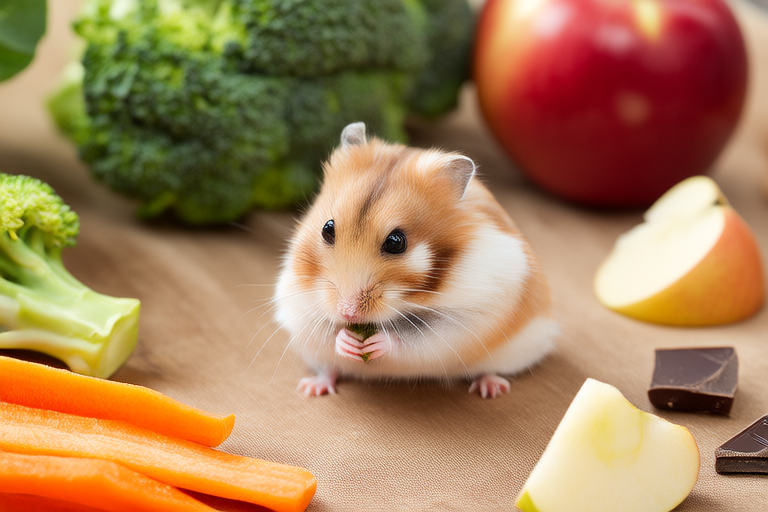Hamster Diet Decoded: What Your Little Friend Should and Shouldn’t Eat
Welcome to the fascinating world of hamster nutrition! As a responsible pet owner, you’re about to discover the secrets behind crafting a balanced diet that ensures your hamster’s optimal health. Hamsters are small, energetic creatures with specific dietary needs that can be easily met with a bit of knowledge and care.
The Importance of a Balanced Diet
A balanced diet is crucial for hamsters because it supports their growth, energy levels, and overall well-being. Just like humans, hamsters need a variety of nutrients to thrive, including proteins, fats, carbohydrates, vitamins, and minerals. A well-fed hamster will have a shiny coat, healthy teeth, and robust immunity against diseases.
Key Components of a Healthy Hamster Diet
Hay
Hay is a cornerstone of a hamster’s diet. It aids in digestion and helps maintain dental health by naturally wearing down their continuously growing teeth. Timothy hay is often recommended due to its low calcium content, which prevents urinary tract issues common in small rodents. Other varieties like orchard grass hay can also be offered, but ensure they are high-quality and free from mold.
Fresh Vegetables
Vegetables provide essential vitamins and minerals. Dark leafy greens such as kale, spinach, and dandelion greens are excellent choices. Root vegetables like carrots and sweet potatoes are rich in beta-carotene and fiber. Always introduce new vegetables gradually to monitor for any digestive upset.
Fruits
Fruits can be given sparingly due to their sugar content. Safe options include apples, strawberries, and blueberries. These treats should be offered in small quantities, no more than once or twice a week.
Commercial Hamster Food
Commercial hamster food, available in pellets or mixes, is designed to meet the nutritional requirements of hamsters. Pellets are particularly beneficial as they ensure a consistent intake of necessary nutrients without the risk of selective eating. Look for brands that include a mix of grains, seeds, and dried fruits, ensuring a balanced diet. Avoid those with excessive nuts or seeds, which are high in fat and calories.
Toxic Foods for Hamsters
It’s important to know what not to feed your hamster. Certain human foods can be toxic or harmful:
- Chocolate: Contains theobromine, which is highly toxic to hamsters.
- Citrus Fruits: High acidity can cause stomach upsets.
- Garlic and Onions: Can lead to hemolytic anemia.
- Nuts: While some nuts can be part of a hamster’s diet, avoid almonds and cashews due to their high fat content.
Tips on Portion Control and Feeding Frequency
Portion control is key to maintaining a healthy weight for your hamster. Offer small portions of fresh vegetables and fruits daily, alongside unlimited access to hay and commercial food. Fresh food should be removed after a few hours to prevent spoilage. Overfeeding can lead to obesity and related health problems, so monitor your hamster’s appetite and adjust portions accordingly.
Water Hygiene
Ensure your hamster has access to clean, fresh water at all times. Use a sipper bottle designed for small animals, as these are less likely to spill and keep the water clean. Change the water daily and clean the sipper bottle thoroughly to prevent bacterial growth.
The Significance of a Varied Diet
A varied diet is essential in preventing nutritional deficiencies. By offering a range of foods, you ensure your hamster receives all necessary nutrients. This diversity also keeps meals interesting, encouraging your pet to eat and stay active. Rotate different types of vegetables, occasional fruits, and a mix of commercial food to keep things exciting.
In conclusion, understanding and providing a balanced diet for your hamster is a rewarding responsibility. With the right mix of hay, fresh vegetables, fruits, and commercial food, you can ensure your little friend enjoys a long, healthy life. Remember to avoid toxic foods, manage portions carefully, and always keep water clean and accessible. Embrace the joy of seeing your hamster thrive on a well-planned diet.
